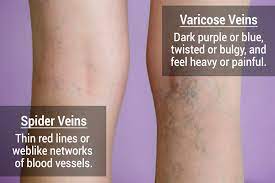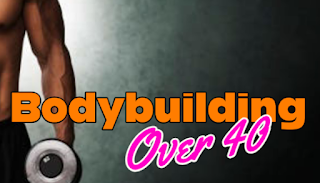If you're a bodybuilder, then you know that varicose veins can be a real problem. They can cause pain and make it difficult to train effectively.
In this article, we will discuss varicose veins and bodybuilding, and what you need to know in order to keep them under control. We'll also provide some tips for preventing varicose veins from developing in the first place. So if you're concerned about varicose veins and your fitness routine, read on!
What are Varicose Veins
Varicose veins are enlarged, twisted veins that can be painful and cause discomfort. They're most commonly found in the legs and feet, and can also occur in other parts of the body.
While varicose veins can affect anyone, they're more common in people who are overweight or have a sedentary lifestyle. Bodybuilders are also at a higher risk for varicose veins due to the increased pressure on the veins from lifting heavy weights.
How Can I Identify Varicose Veins?
Varicose veins are usually easy to spot. They're typically dark blue or purple and can be seen under the skin. If you have varicose veins, you may also notice swelling in your legs or feet.
If you think you may have varicose veins, it's important to see a doctor so they can be properly diagnosed.
What Causes Varicose Veins?
There are a few things that can cause varicose veins, including:
- Obesity
- Pregnancy
- Standing or sitting for long periods of time
- genetics
As we mentioned earlier, bodybuilders are also at a higher risk for varicose veins due to the additional pressure on the veins from lifting heavy weights.
The Difference Between Varicose Veins and Vascularity
It's important to note that varicose veins and vascularity are not the same thing. Vascularity is the appearance of visible veins on the surface of the skin and is considered to be a sign of good health.
Many bodybuilders strive for vascularity as it can give them a more aesthetic look. However, varicose veins are a different story. While vascularity is considered to be aesthetically pleasing, varicose veins are often seen as unsightly and can be painful.
How Can I Prevent Varicose Veins?
You can do several things to prevent varicose veins from developing or reduce their symptoms if you already have them.
First, make sure you're staying hydrated by drinking plenty of water every day. This will help to keep your veins healthy and prevent them from becoming varicose.
Second, avoid sitting or standing for long periods of time. If you must sit or stand for extended periods, take breaks often and move around to keep the blood flowing.
Third, wear loose-fitting clothing and avoid constrictive clothing or shoes. This will help to reduce the pressure on your veins and prevent varicose veins from developing.
Finally, exercise regularly. This will help to improve circulation and keep your veins healthy.
How Can I Reduce Varicose Veins?
If you already have varicose veins, there are several things you can do to reduce their symptoms.
First, try wearing compression stockings or socks. These can help to reduce pain and swelling by applying pressure to the veins.
Second, elevate your legs when you can. This will help to reduce the pressure on the veins and improve circulation.
Third, try taking over-the-counter pain medication such as ibuprofen to help with pain and inflammation.
Finally, see a doctor if your varicose veins are severe or if you're experiencing any other symptoms such as fever, redness, or swelling.
Is it Dangerous to Train With Varicose Veins?
Varicose veins can be dangerous if left untreated. If the valves in your veins are damaged, it can cause blood to pool in your legs and lead to inflammation, pain, and ulcers. In severe cases, varicose veins can even rupture and cause life-threatening bleeding.
If you have varicose veins, it's important to see a doctor so they can assess the severity of your condition and recommend treatment. In some cases, you may need to avoid training or lifting heavy weights until the varicose veins have healed.
If you are someone who is constantly working out, varicose veins can make working out a difficult task. In order to prevent varicose veins or at least treat the symptoms, compression stockings are your best friend. Compression stockings help by applying pressure to the veins and thus, prevent blood from pooling.
If you find that varicose veins are constantly bothering you or if they are severe, it is best to see a doctor as varicose veins can rupture and cause life-threatening bleeding. Other than that, make sure to stay hydrated and elevate your legs when you can!
What are Spider Veins?
Spider veins are similar to varicose veins but are usually smaller and not as severe. They can be found on the surface of the skin and are often red, blue, or purple. Spider veins can also be painful and cause swelling, inflammation, and ulcers.
Like varicose veins, spider veins can also be caused by sitting or standing for long periods of time, constrictive clothing, and lack of exercise.
The best way to prevent spider veins is to stay hydrated, avoid sitting or standing for long periods of time, wear loose-fitting clothing, and exercise regularly. If you already have spider veins, you can try wearing compression stockings or socks, elevating your legs, taking over-the-counter pain medication, and seeing a doctor if the veins are severe.
What are the Best Supplements for Varicose Veins?
There are several supplements that can help to improve circulation and reduce the symptoms of varicose veins.
Vitamin C is an essential vitamin for collagen production and helps to keep veins healthy.
Vitamin E is another good option as it helps to reduce inflammation and pain. Butcher's broom is a herb that has been shown to improve circulation and reduce inflammation.
Horse chestnut is another herb that can help to reduce swelling and pain.
Finally, Ginkgo Biloba is a herb that can help to improve circulation and prevent varicose veins from getting worse.
Exercises To Prevent Varicose Veins
There are several exercises that can help to prevent varicose veins. Regular exercise helps to improve circulation and prevent blood from pooling in the veins.
Try incorporating some of these exercises into your routine:
- Walking: A simple and effective way to get the blood flowing and reduce pressure on the veins.
- Swimming: An excellent way to get a full-body workout without putting too much strain on the veins.
- Cycling: A great cardio workout that also helps to improve circulation.
- Yoga: Helps to improve flexibility and reduce stress, which can worsen varicose veins.
Home Remedies for Varicose Veins
There are several home remedies that can help to reduce the symptoms of varicose veins.
- Apple cider vinegar: Apply a compress of apple cider vinegar and water to the affected area for 15 minutes, three times a day.
- Witch hazel: Apply witch hazel to a cotton ball and apply it to the affected area for 15 minutes, three times a day.
- Aloe vera: Apply aloe vera gel to the affected area and massage it in for 15 minutes, three times a day.
- Grape seed extract: Take 100mg of grape seed extract three times a day.
- Butcher's broom: Take 100mg of butcher's broom three times a day.
When to See a Doctor
If home remedies and over-the-counter treatments are not working, it is time to see a doctor. varicose veins can worsen over time and may cause serious complications such as blood clots, ulcers, and bleeding. A doctor can prescribe stronger medication or recommend surgery to treat varicose veins.
The Effect of Hormones on Varicose Veins
Hormones can also play a role in the development of varicose veins. Pregnancy, menopause, and birth control pills can all cause an increase in hormones, which can lead to varicose veins.
This is the main reason that varicose veins are more common in women than in men.
The Effect of Diet on Varicose Veins
What you eat can also affect varicose veins. A diet high in salt can cause the body to retain water, which can lead to swelling and inflammation.
A diet high in sugar can also cause varicose veins as it leads to insulin resistance and inflammation.
Finally, a diet high in saturated and trans fats can also cause varicose veins as it leads to inflammation and a build-up of plaque in the veins.
The Effect of Alcohol on Varicose Veins
Alcohol can also contribute to varicose veins. Alcohol is a diuretic, which means it causes the body to lose water.
This can lead to dehydration, which can cause the veins to become dilated and inflamed.
The Effect of Smoking on Varicose Veins
Smoking is another factor that can contribute to varicose veins. Smoking damages the walls of the veins and makes it difficult for them to transport blood.
This can lead to a build-up of pressure in the veins, which can cause them to become varicose.
The Effect of Steroids on Varicose Veins
Steroids can also cause varicose veins. Steroids are hormones that can lead to an increase in blood pressure.
As with smoking, bad diet and alcohol, this can damage the walls of the veins and make them more likely to become varicose.
Conclusion
Varicose veins can be a pain, but there are things you can do to prevent them from developing or to reduce their symptoms. by following the tips we've outlined above, you can keep varicose veins under control and maintain an active bodybuilding lifestyle.




.png)




